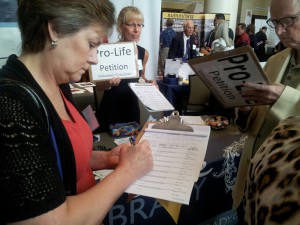Why does Coffman think climate-change research is controlled by radical environmental orthodoxy
Tuesday, September 17th, 2013Last month, Rep. Mike Coffman told long-time KOA talk show host Mike Rosen that a lot of scientists can’t get climate-change research grants unless they “submit” to the “orthodoxy of climate change by the radical environmentalists.”
Some media outlets quoted Coffman’s radio comments, but not a single journalist has reported asking Coffman to explain himself, even though global warming, even if you’re a skeptic, ranks at the top of the list of environmental issues of our time.
So, since Coffman won’t talk to me, I’m left to speculate about what he was talking about.
I found a handy breakdown of U.S. government funding for climate research.
The top granter is NASA. Does Rad Enviro orthodoxy prevail over there?
Next is the National Oceanic and Atmospheric Administration, followed by the National Science Foundation. Both aren’t known for harboring the radical environmental set.
But what percentage of the total funding for climate-change research comes from the feds anyway?
I asked Prof. John Reilly, who Co-directs the Joint Program on the Science and Policy of Global Change Center for Environmental Policy Research at MIT’s Sloan School of Management, and he estimated that over 90 percent comes from governments worldwide, with the U.S. government providing the most money.
He added: “The definition of ‘radical environmentalist’ will of course depend on one’s views and interpretation of the science. Both environmental groups and private companies with a range of perspectives fund some research.”
So this opens up a serious line of questioning for Coffman. What is his definition of a radical environmentalist?
In a Twitter discussion of this topic, “AFPColorado” told me NASA may be be submitting to radical-enviro-global-warming orthodoxy because “it helps fatten budgets and supplants [its] abandoned original mission (manned space flight).” AFP Colorado offered me an article claiming that “climatism” is, as AFPColorado put it, an “orthodoxy-enforcing religion,” used to create alarmism and justify grants.
In his interview with Rosen, Coffman said he’d read “viable sources” backing up his view that radical environmental orthodoxy controls grant funding for climate change. Maybe Coffman was thinking about the article from AFPColorado? It’s titled “Science in the Public Square: Global Alarmism and Historical Perspectives” by Richard Lindzen.
I asked Prof. Reilly if he knew what sources Coffman might possibly be thinking of. He told me via email:
Reilly: I am not aware of “viable sources” that have evaluated whether research grant applications that challenge the “orthodoxy of climate change” are more or less likely to be funded. A great strength of the US research system is that there are many different sources of research funding. These programs award grants on the basis of peer review by scientists, and so the grant managers are relatively constrained by the results of the peer review. In the US there is also an important tradition of industry and philanthropist funding of research. The Program I run at MIT is funded in part by a large industrial consortia (the industrial sponsors are identified on our WEB site) and so that provides us with additional freedom to investigate the climate issue, unconstrained by any Federal funding bias, if that is the Congressman’s concern. Ultimately, whatever the source or potential bias of research funding, to ultimately have scientific credibility any research findings must find their way into the peer-reviewed literature. Hence that is another check in the system.
It is the case that granting programs are very competitive. Climate change is an area that has energized scientists, in part because of the intensity of the public debate, and so there are many scientists competing over a limited amount of funding. Such competition, just like in the market place, is a good thing but it means that many proposals rated excellent and very good don’t make the cut. It is probably only human nature to look for larger reasons if one’s proposal fails. For competitive grants from the NSF, for example, my guess is that the success rate is only 10% or less, and even for my Program at MIT I must confess probably no higher success rate than that. Human beings must one way or another make decisions throughout the research system and so there are no doubt imperfections. However, the US system of multiple competitive grant programs, private funding, peer review of grants, and peer review of research findings introduces many checks, balances, and funding opportunities, and so the system is not easily manipulated.
I provide you with Reilly’s entire response because you have to admire his effort to be fair and thoughtful about Coffman’s assertion, but I’ll re-quote his last seven words because I think they sum up his view “so the system is not easily manipulated.”
Coffman is saying that, in the case of global-warming grants, science is being manipulated, and not just in subtle way, but by extremists. He’s attacking science.
But the good thing is, science welcomes attacks, especially from real-life Congressman like Coffman, because they force scientists to justify their work.
Except Coffman isn’t explaining himself, and journalists aren’t forcing him to.
Who’s to blame for this? Radical environmentalists?



